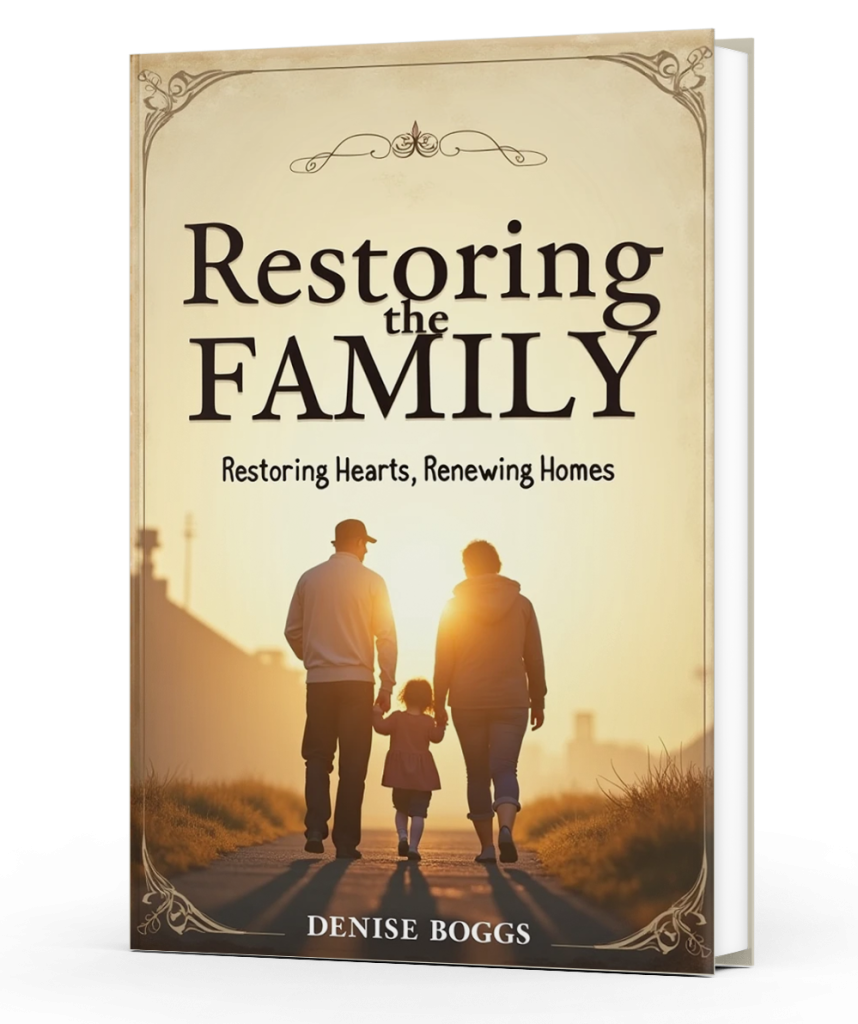Introduction
In a world filled with uncertainties, preparing for the future can sometimes feel like a daunting task, leading many to respond out of fear. But biblical wisdom teaches that preparedness is not rooted in fear but in prudence and faith in God’s provision. The Bible gives us a powerful example of this in the story of Joseph, who prepared Egypt for famine—not out of anxiety, but through his trust in God’s wisdom and provision. This article explores the need to eliminate fear from our lives, replacing it with faith-driven preparedness that reflects God’s love, peace, and foresight.
Understanding Fear and Its Impact
Fear is a powerful emotion that can distort our perspectives and hinder us from seeing God’s faithfulness. The Apostle Paul reminds us in 2 Timothy 1:7: “For God has not given us a spirit of timidity, but of power and love and discipline” (NAS). Paul’s words reveal that fear is not a gift from God but a burden that can cloud our ability to make wise decisions and trust in His provision. Instead of fear, God offers us power, love, and a sound mind—qualities that empower us to act with confidence and purpose.
In the Bible, Jesus continually reminds His followers not to be afraid but to rest in God’s peace and assurance. In John 14:27, Jesus says, “Peace I leave with you; My peace I give to you; not as the world gives, do I give to you. Do not let your heart be troubled, nor let it be fearful.” This peace is essential for those called to be ready for the future, knowing that God equips and strengthens us for the journey ahead.
Joseph’s Story: Preparedness through Faith, Not Fear
The story of Joseph in Egypt provides a powerful example of faith-inspired preparedness. After being sold into slavery by his brothers, Joseph endures many hardships but remains steadfast in his trust in God. Eventually, Joseph is elevated to a position of authority in Egypt, where he is tasked with interpreting Pharaoh’s troubling dreams about an impending famine. Joseph tells Pharaoh that seven years of abundance will be followed by seven years of severe famine, prompting Pharaoh to entrust him with the preparation for the crisis.
Joseph’s response to the coming famine is marked not by panic, but by prudent planning. He advises Pharaoh, saying in Genesis 41:34-36: “Let Pharaoh take action to appoint overseers in charge of the land, and let him exact a fifth of the produce of the land of Egypt in the seven years of abundance. Then let them gather all the food of these good years that are coming, and store up the grain for food in the cities under Pharaoh’s authority, and let them guard it” (NAS).
Joseph’s preparation is an act of faith, not fear. His wisdom and foresight ultimately save not only Egypt but surrounding nations from the devastating effects of famine. Joseph’s actions align with Proverbs 6:6-8, which encourages preparation by observing the ant: “Go to the ant, O sluggard, observe her ways and be wise, which, having no chief, officer or ruler, prepares her food in the summer and gathers her provision in the harvest” (NAS). Just as Joseph and the ant prepare for the future, we, too, are called to act with foresight and diligence.
The Role of Preparedness in God’s Plan
Preparedness is a reflection of God’s wisdom and care for His people. While fear urges us to hoard or act out of desperation, faith-driven preparedness is rooted in stewardship and compassion. In preparing wisely, we align ourselves with God’s command to care for others and ensure that, in times of need, we are able to serve our families and communities. Proverbs 21:20 reminds us of the value of storing provisions wisely: “There is precious treasure and oil in the dwelling of the wise, but a foolish man swallows it up” (NAS). True preparedness ensures that resources are used thoughtfully and reserved for times when they are truly needed.
Joseph’s preparation for the famine was not only for his own survival but to fulfill a purpose beyond himself. In Genesis 50:20, Joseph reflects on God’s plan, saying, “As for you, you meant evil against me, but God meant it for good in order to bring about this present result, to preserve many people alive” (NAS). His diligent planning brought peace and security to countless others, underscoring how God can use wise preparedness to bless and protect many lives.
Faith-Filled Preparedness versus Fear-Based Hoarding
One of the key differences between faith-based preparedness and fear-based hoarding is the mindset with which we approach the future. Fear creates anxiety, scarcity, and distrust, often leading people to hold on tightly to resources. Faith, however, allows us to see the future with hope and resilience, trusting that God will provide for our needs as we steward our resources wisely.
When we prepare in faith, we acknowledge God’s sovereignty and His call to serve others. Fear can drive us to act out of self-interest, but faith invites us to prepare so that we may have something to share with those in need. Proverbs 11:24-25 encourages this mindset: “There is one who scatters, and yet increases all the more, and there is one who withholds what is justly due, and yet it results only in want. The generous man will be prosperous, and he who waters will himself be watered” (NAS).
As believers, our preparedness should be motivated by love, generosity, and the desire to be a light to those around us. Joseph’s willingness to share Egypt’s grain with surrounding nations during the famine illustrates how faith-driven preparedness enables us to be a blessing to others rather than living in isolation.
Practical Steps for Faith-Based Preparedness
Preparedness is a practical way of showing both love and wisdom, especially in uncertain times. Here are some actionable steps for faith-filled preparedness:
- Start Small and Build Gradually – Begin with essential supplies for yourself and your family, such as food, water, and basic health needs. Pray for guidance on what is needed and take small, consistent steps.
- Pray for Wisdom – Seek God’s guidance in your preparation efforts. James 1:5 reminds us, “But if any of you lacks wisdom, let him ask of God, who gives to all generously and without reproach, and it will be given to him” (NAS).
- Consider the Needs of Others – Be mindful of how your preparation can benefit those around you. Look for ways to share resources, knowledge, or support with others who may lack the means to prepare.
- Stay Grounded in Faith, Not Fear – Remember that our hope is not in material possessions but in God’s provision. When fears about the future arise, counter them with prayer and trust in God’s faithfulness.
- View Preparedness as Stewardship – Recognize that being prepared is a way of honoring the resources God has provided and using them wisely for the benefit of others.
Preparedness as an Expression of Faith
The Bible shows us that preparation can be a profound expression of faith and obedience to God. By preparing, we honor God’s guidance and show love and care for others, just as Joseph did when he gathered grain for Egypt. Preparedness rooted in faith offers a sense of peace, reminding us that our ultimate security is found not in what we have but in who God is.
In times of uncertainty, rather than allowing fear to dominate, we can adopt a mindset of hope, generosity, and service. Jesus said in Matthew 6:31-33, “Do not worry then, saying, ‘What will we eat?’ or ‘What will we drink?’ or ‘What will we wear for clothing?’ For the Gentiles eagerly seek all these things; for your heavenly Father knows that you need all these things. But seek first His kingdom and His righteousness, and all these things will be added to you” (NAS).
Conclusion: Faith Over Fear in Preparedness
Preparedness becomes powerful when it’s an act of faith, not fear. By eliminating fear and trusting in God’s provision, we allow His peace to reign in our lives, enabling us to prepare with love, wisdom, and compassion. Joseph’s story in Egypt reminds us that true preparedness is rooted in obedience and faith, not anxiety or worry.
As believers, let us embrace preparedness not as a means of control but as an act of trust in God’s provision, so we may be equipped to serve and bless others. In doing so, we fulfill the calling to be wise stewards, living with confidence and peace, and being ready to share God’s goodness in times of need.






